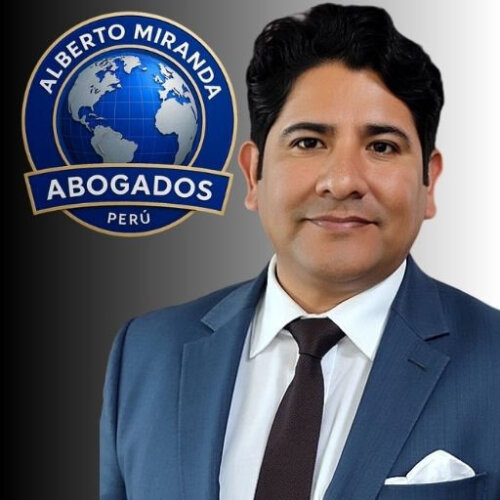Best Marriage Lawyers in Lima
Share your needs with us, get contacted by law firms.
Free. Takes 2 min.
Free Guide to Hiring a Family Lawyer
List of the best lawyers in Lima, Peru
About Marriage Law in Lima, Peru
Marriage law in Lima, Peru operates under the larger context of Peruvian national law. There are two types of marital unions recognized in Peru - civil marriages and religious marriages. Civil marriages are legally binding once the ceremony has been performed by a government official. Religious marriages, typically conducted by a church official, are recognized by the law once a civil registry certificate is presented. Legal age for marriage in Peru is 18. Foreigners looking to get married in Peru need to provide a certificate of no impediment, or an equivalent document from their home country, as well as valid passports and an affidavit before the Peruvian consulate.
Why You May Need a Lawyer
While planning a wedding can be a joyful experience, it also involves dealing with serious legal matters. For instance, foreigners might face difficulties understanding the requirements for marriage set by Peruvian law. In case of a divorce, each party might need legal representation to conduct negotiations. If children or property are involved, understanding and negotiating terms can become complex and stressful. For these and other marriage-related legal matters, obtaining a lawyer’s help could be valuable.
Local Laws Overview
In Lima, as per Peruvian law, prenuptial agreements are not recognized. In terms of property division upon divorce, Lima operates under the community of property regime, meaning all assets gained during the marriage are shared equally. However, any property acquired before the marriage remains exclusive to each individual. In case of divorce, child custody is typically given to the mother unless proven otherwise that it is in the best interest of the child to stay with the father. Alimony discussions are also subject to the court's discretion.
Frequently Asked Questions
What is the legal age for marriage in Lima, Peru?
The legal age for marriage in Peru is 18 for both men and women.
What documents are required for foreigners to marry in Lima?
Foreigners are required to provide valid passports, an affidavit sworn before the Peruvian consulate, and a certificate of no impediment, or equivalent document from their home country declaring them eligible to marry.
Are prenuptial agreements recognized in Lima, Peru?
No, prenuptial agreements are not recognized by the law in Lima, or in Peru generally.
How is property divided upon divorce in Lima, Peru?
The law in Lima defines marriage as a community of property, meaning assets acquired during the marriage are split equally upon divorce. However, each individual retains property acquired before the marriage.
Who typically gets child custody in Lima, Peru?
Ordinarily, child custody is awarded to the mother. However, this can be challenged if it can be proven to be in the best interest of the child to live with the father.
Additional Resources
For further advice or guidance, you may consider consulting with the local Registry Office (Registro Civil) or the Ministry of Justice and Human Rights (Ministerio de Justicia y Derechos Humanos). Also, expat forums and international law firms based in Lima can offer valuable guidance and resources.
Next Steps
If you need legal assistance in matters concerning marriage in Lima, start by seeking professional advice. This might involve making an appointment with a local law firm in Lima that specializes in family law. Prepare yourself by writing down any questions you may have and gathering all relevant documents before said appointment.
Lawzana helps you find the best lawyers and law firms in Lima through a curated and pre-screened list of qualified legal professionals. Our platform offers rankings and detailed profiles of attorneys and law firms, allowing you to compare based on practice areas, including Marriage, experience, and client feedback.
Each profile includes a description of the firm's areas of practice, client reviews, team members and partners, year of establishment, spoken languages, office locations, contact information, social media presence, and any published articles or resources. Most firms on our platform speak English and are experienced in both local and international legal matters.
Get a quote from top-rated law firms in Lima, Peru — quickly, securely, and without unnecessary hassle.
Disclaimer:
The information provided on this page is for general informational purposes only and does not constitute legal advice. While we strive to ensure the accuracy and relevance of the content, legal information may change over time, and interpretations of the law can vary. You should always consult with a qualified legal professional for advice specific to your situation.
We disclaim all liability for actions taken or not taken based on the content of this page. If you believe any information is incorrect or outdated, please contact us, and we will review and update it where appropriate.










